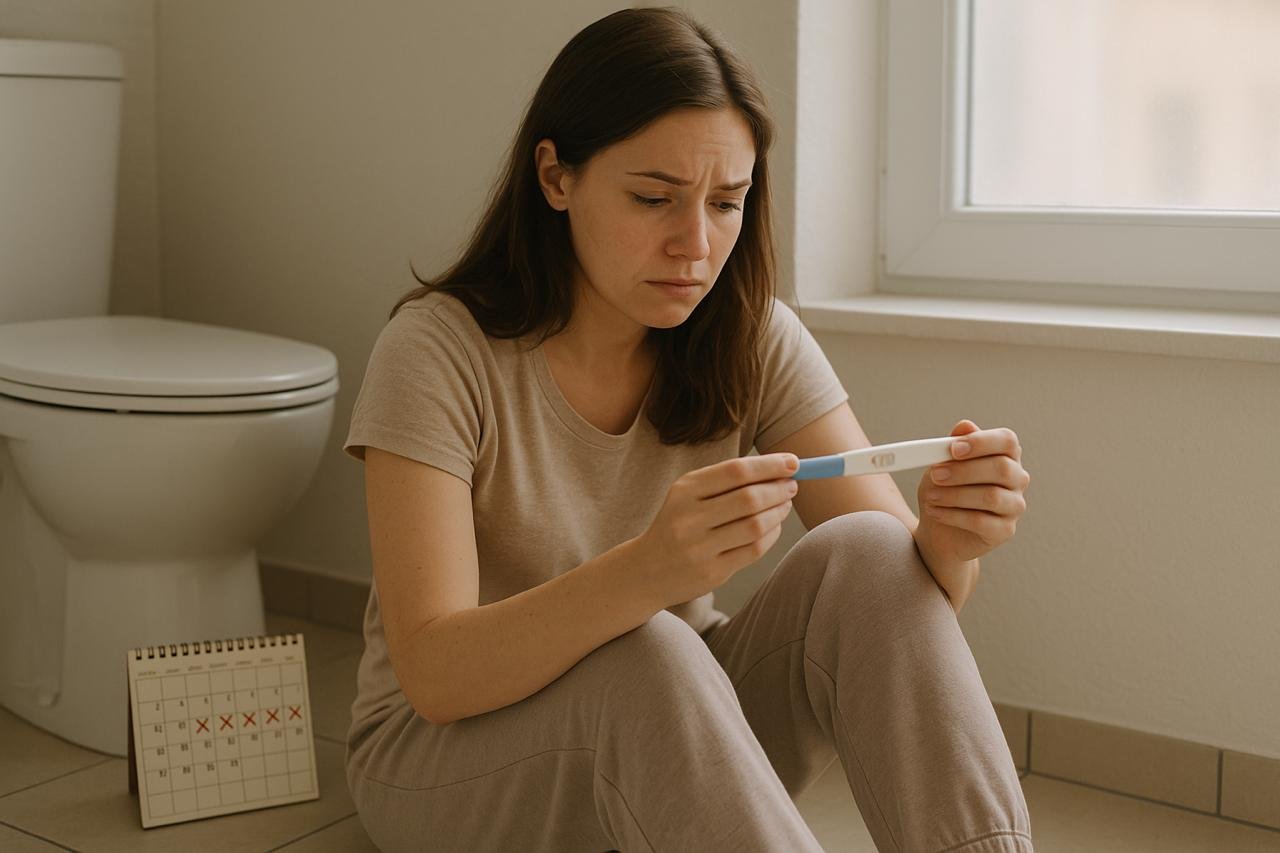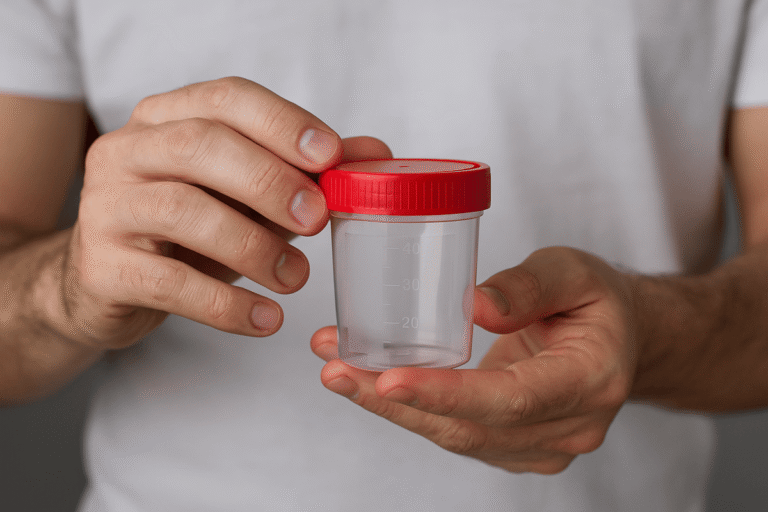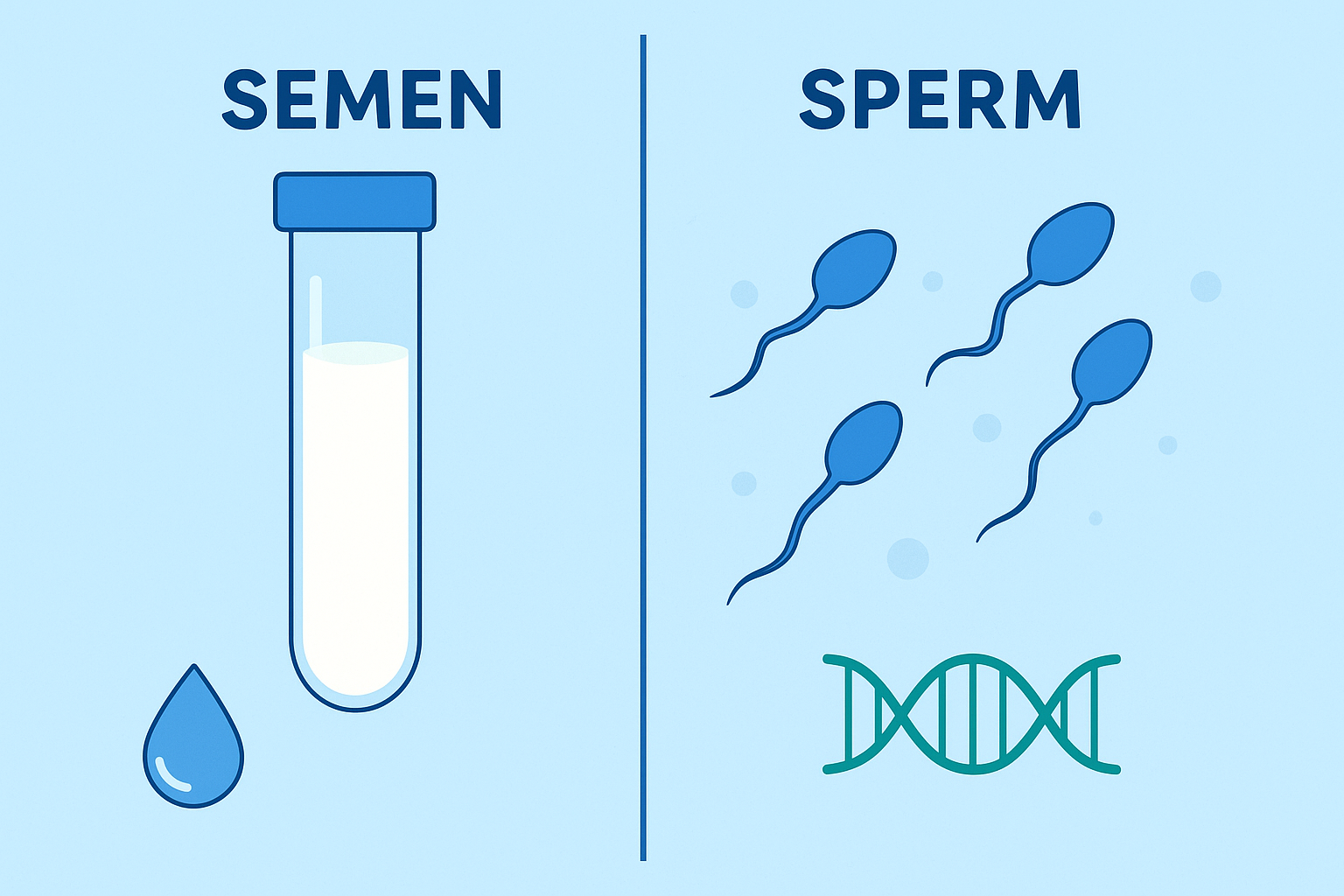Missing your period is usually the moment your heart skips a beat—whether you’re hoping for a baby or not. So, you take a pregnancy test. You hold your breath, watching the seconds tick by… and it says ‘negative‘.
Okay, now what?
You’re not pregnant. But your period hasn’t shown up either. That combo—no period and a negative test—is enough to send anyone spiralling into Google rabbit holes. But before you panic (or get your hopes up), it’s worth taking a moment to explore what might be happening inside your body.
Let’s walk through it together.
First, Could It Just Be a Testing Error?
Before we dive into all the potential medical causes, we’ve to ask: Are you sure it’s negative?
Because sometimes, honestly, it’s not the test—it’s the timing. Or the technique. Or even just bad luck.
Here’s what can mess up a home pregnancy test:
- Testing too early. Your body needs time to build up hCG—the hormone tests detect. If you test too soon (like a day after your missed period), it might just not be there yet. A few more days can make all the difference.
- Diluted urine. If you drink a lot of water or test later in the day, your hCG levels may become diluted and not show up. First morning pee is always your best bet.
- Expired or faulty tests. They exist. Not common, but if the test has been sitting in the back of a drawer since last year, consider grabbing a fresh one.
- Misreading the result. The faintest of lines can still mean pregnant. But also… evaporation lines exist and they love messing with our sanity.
So, if the test says negative but something in your gut says otherwise, wait a couple of days and test again. You’d be surprised how many people get a positive on round two (or three).
Also read: How to Manage Relationship Anxiety: A Complete Guide to Finding Peace
But What If It’s Not Pregnancy At All?
Let’s say you’ve ruled out testing error. You’ve waited a few extra days, even tried a second brand—still negative. And no period in sight. Now it’s time to dig deeper.
Here are the most common reasons your period might ghost you—even when you’re not pregnant.
1. Stress (Yes, Really That Powerful)
This might sound like the throwaway explanation, but stress can be a considerable factor. When your body is under physical or emotional stress, it can affect your hypothalamus—the part of your brain that regulates hormones.
No ovulation = no period.
And here’s the kicker: You might not even feel particularly stressed. Sometimes your body internalises it even if your brain thinks everything is fine. Moving to a new city, working late, fighting with a partner, or even low-grade anxiety can throw off your cycle.
2. Polycystic Ovary Syndrome (PCOS)
PCOS is one of the most common hormonal disorders affecting women of reproductive age. If your periods are irregular—or suddenly go MIA for a month or two—this could be why.
You might not know you have PCOS. Many people don’t realise this until they start trying to conceive.
Signs to look out for:
- Irregular or missing periods
- Unwanted hair growth (chin, chest, etc.)
- Weight gain or trouble losing weight
- Oily skin or acne that just won’t quit
It’s not always easy to pinpoint. Some people have all the signs; others don’t. However, if your periods are irregular, it may be worth discussing with your doctor.
3. Weight Fluctuations (Up or Down)
Our hormones don’t exist in a vacuum—they respond to our environment, food intake, fat stores, and more.
If you’ve recently gained or lost a significant amount of weight—especially if it’s happened quickly—it can disrupt your cycle. The body sometimes interprets drastic changes as a sign it’s not a good time to reproduce, so it hits pause on your period.
That’s especially true for:
- People with eating disorders or disordered eating habits
- Athletes or those with very low body fat
- Anyone who’s made a major diet or exercise change recently
You might not notice the connection at first, but even a 10–15 pound weight gain can impact cycle regularity.
4. Thyroid Issues
Your thyroid is a small gland with a considerable job. It helps regulate your metabolism, energy levels, and—yep—your menstrual cycle.
If your thyroid is underactive (hypothyroidism) or overactive (hyperthyroidism), it can disrupt ovulation, delay your period, or stop it altogether. Other signs include:
- Fatigue
- Weight changes
- Hair thinning
- Mood swings
- Feeling too cold or too hot
5. Perimenopause or Early Menopause
If you’re over 35 and your cycles are getting a little wonky, perimenopause might be part of the picture. You might still be ovulating sometimes—but not regularly. That can lead to months where your period… doesn’t happen.
And no, menopause isn’t just something that happens at 50. Some people enter perimenopause in their late 30s or early 40s. A small percentage may even experience premature ovarian insufficiency (POI) before 40.
It doesn’t mean you’re “old.” Hormones don’t always follow the rules.
Also read: Dollar Tree Pregnancy Test: Is a $1 Test Reliable?
6. Recently Stopped Birth Control
Just stopped the pill? IUD removed? Patch tossed in the trash?
It can take a little while for your cycle to regulate after hormonal birth control. For some people, periods return to normal right away. For others, it can take a few months—especially if they were on it for years.
It’s frustrating, yes. But usually temporary.
If it’s been more than 3–4 months without a period post-BC, your doctor may suggest hormone tests or a jump-start medication.
7. Travel or Lifestyle Shifts
This one’s easy to overlook, but sometimes even small changes can affect your cycle. Things like:
- Changing time zones
- Starting a new workout program
- Sleep disruptions (especially night shifts)
- Moving to a new environment or climate
Your body likes rhythm and routine. When that changes—even briefly—it might respond by delaying ovulation.
8. Medications
Certain meds can interfere with ovulation or hormone levels. This includes:
- Antipsychotics
- Antidepressants
- Chemotherapy drugs
- Blood pressure medications
- Hormonal treatments or fertility meds
If you’ve recently started (or stopped) a new prescription, that could explain your late period.
9. Other Hormonal Imbalances
Sometimes there’s no clear answer until you test. Things like high prolactin levels (a hormone usually associated with breastfeeding) can mess with your cycle even if you’re not pregnant or nursing.
Luteal phase defects, low progesterone, or high cortisol levels may also cause silent ovulation or disrupted menstrual patterns.
You won’t necessarily know unless you get a hormone panel done—but it’s something to consider if this becomes a pattern.
10. You Are Pregnant… Just Not Detectable Yet
And yes, we have to loop back to this.
It’s rare—but not unheard of—for someone to be pregnant and still get negative tests in the early weeks. Sometimes it’s due to:
- Late ovulation (your cycle was longer than expected)
- Low initial hCG production
- Faulty or expired test kits
- Testing too soon, even by a day or two
If your period is more than a week late, take another test. If that’s also negative, consider asking your doctor for a quantitative hCG blood test, which is more sensitive than urine-based tests.
When to See a Doctor
If your period hasn’t arrived after 6 weeks, and pregnancy tests keep saying no, it’s a good idea to get checked out—especially if this isn’t normal for you.
Your doctor may want to:
- Run blood tests (pregnancy and hormone levels)
- Check thyroid function
- Perform a pelvic ultrasound
- Review your medical history and lifestyle
Sometimes just knowing what’s going on can be a huge relief—even if it turns out to be something simple.
Also read: The Top 10 Foods That Can Boost Sperm Count and Motility.
Final Thoughts: It’s Probably Not as Weird as It Feels
When you’re staring down a missed period and a negative test, it’s hard not to imagine the worst. But the truth is, it happens to a lot of people, and usually, there’s a reasonably standard explanation.
Still, your cycle serves as a monthly check-in with your health. If things are off and you’re unsure why, it’s okay to ask questions. And it’s OK to follow your gut if something doesn’t feel right.
Whether it turns out to be stress, hormones, travel, or something in between, your body is just trying to tell you something.
Sometimes, you have to listen closely.





[…] When you’re eagerly waiting for that big moment, the one where you finally find out if you’re pregnant, the last thing you want is uncertainty. And unfortunately, sometimes pregnancy tests, though designed to be super reliable, can throw a wrench into the process. You know the drill: you wait for a few minutes, stare at that little window, and then—nothing. Or worse, a faint line. But what if the test is wrong? Specifically, what if you’re carrying twins, and that’s the reason that twins can cause false negative pregnancy test? […]